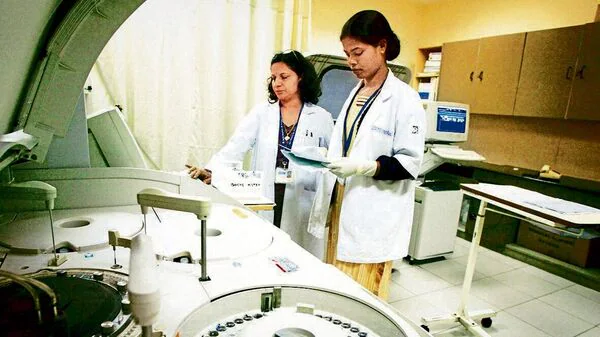
Govt Plans Unified Quality Checklist For Medical Colleges, Critical Care Labs
New Delhi: In a bid to raise the bar for medical education and patient care, the government is preparing a quality overhaul of all 808 medical colleges across India. According to senior officials and documents reviewed by Mint, the health and family welfare ministry is finalizing a unified checklist of standards for medical college hospitals, laboratories, and critical care blocks, a move aimed at harmonizing patient safety and clinical training nationwide.
The new National Quality Assurance Standards (NQAS) will define measurable indicators for departments and specialty units, enabling hospitals to track outcomes more transparently and help patients make informed choices about care.
The initiative comes amid growing concern over uneven quality in healthcare delivery, with The Lancet estimating that substandard medical care claims about 1.6 million lives in India each year.
Officials say the framework, discussed at the 11th Central Quality Supervisory Committee meeting held in August signals a shift toward evidence-based, outcome-driven oversight of both medical training and hospital performance.
Also Read | India seeks pharma firms' partnership to develop indigenous Nipah virus antibThe meeting discussed the development of the standards for medical colleges, block public health laboratories (BPHLs) and critical care blocks (CCBs).
“The standards and measurable elements specific to medical college hospitals under NQAS have been finalized, and it was decided to constitute specialty-wise working groups to develop department-specific assessment checklists," said the document reviewed by Mint.
The first meeting of the expert group, constituted for framing quality standards for hospitals attached to medical colleges, has already taken place, said an official in the know.
Another official familiar with the development said standards and measurable elements for block public health labs have already been drafted, and work is in progress to develop a checklist aligned with operational guidelines.
Requirements specific to critical care blocks are being strengthened to ensure comprehensive quality improvement, the official added. These blocks comprise key service areas, including emergency rooms, intensive care units (ICUs), isolation wards, operation theatres, and labour rooms & newborn care corners.
Since the new rules are still in development, the specific decision on punitive action for non-compliance has not yet been finalized.
The National Medical Commission, the primary regulator for medical colleges in India, wields significant punitive authority under existing laws, including the power to de-recognize medical colleges and imposing monetary penalties.
Also Read | India moves to regulate gene, stem cell therap Patient safetyDr Alexander Thomas, a public health expert and founder and patron of the Association of National Board Accredited Institutions (ANBAI), said this would be "a crucial step in elevating and harmonizing the standards across all medical colleges, ensuring consistent patient safety and clinical excellence, while directly impacting medical training and care outcomes".
Embedding these standards in teaching and routine operations will help future healthcare professionals value evidence-based quality and safety early in their careers, which will raise national standards over time, he added.
Dr Thomas also said high-quality checklists are essential for consistent adherence to infection control protocols, especially in critical care and laboratory settings, where lapses can lead to adverse outcomes, including hospital-acquired infections (HAIs) that, increase patient morbidity and mortality.
Also Read | India readies crackdown on pharma licence fraud with new draft ru“A strict, unified quality checklist system in Indian medical colleges and critical healthcare blocks is not just a regulatory requirement but a public health imperative," he said.“Uniform quality checklists create clarity and focus for institutions, eliminating 'checklist fatigue' caused by having to comply with multiple overlapping or conflicting protocols. Improved documentation, auditing, and regular feedback loops driven by checklist compliance will help the team and leadership to promptly identify and correct lapses."
Queries sent to the health ministry spokesperson on Saturday remained unanswered till press time.
“Setting up the quality standards is a very useful exercise for medical colleges. The ministry has asked us for this and we are going to nominate some experts from our side," said Dr Abhijath Seth, chairman of the National Medical Commission that oversees the functioning of medical colleges in India.
Legal Disclaimer:
MENAFN provides the
information “as is” without warranty of any kind. We do not accept
any responsibility or liability for the accuracy, content, images,
videos, licenses, completeness, legality, or reliability of the information
contained in this article. If you have any complaints or copyright
issues related to this article, kindly contact the provider above.


















Comments
No comment